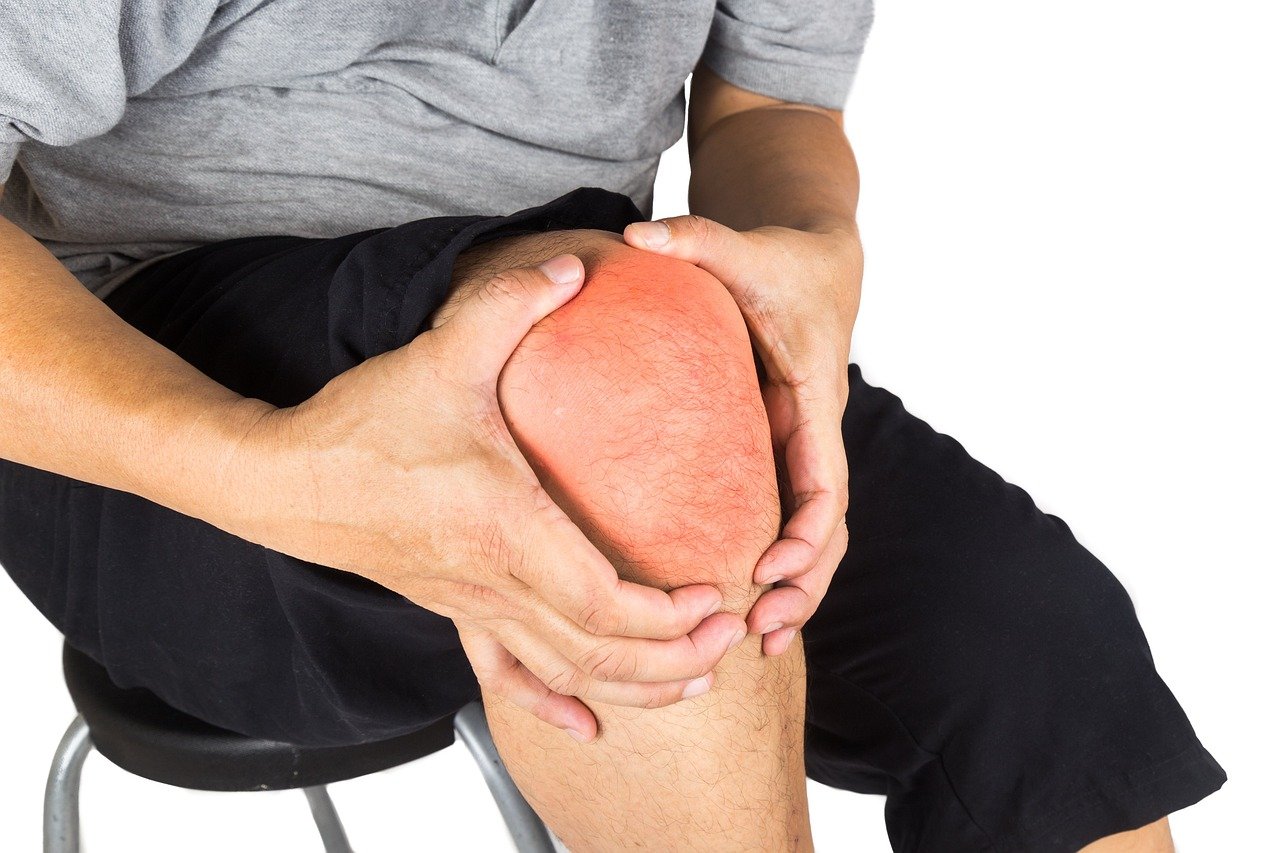Joint pain is a common issue that can range from mild discomfort to severe pain that disrupts daily life. While joint pain is often associated with aging, it can happen at any age due to lifestyle habits or health issues. The good news? Most causes of joint pain can be managed with simple changes. Here’s why you might have joint pain and how to fix it.
1. Lack of Movement: Joints Need Regular Motion
One of the biggest reasons for joint pain is not moving enough. When you sit or stay still for too long, joints stiffen, and the muscles around them weaken. This adds pressure to your joints, leading to pain.
How to fix it:
Get moving throughout the day. Low-impact exercises like walking, cycling, or swimming can help keep your joints flexible without straining them.
Tip:
Set a reminder to stand up, stretch, or walk around every hour, especially if you sit at a desk. Even short movements can prevent stiffness.
2. Overusing Joints: Repeated Actions Add Strain
Too much high-impact activity can also harm joints. Repeating the same actions—like running, jumping, or heavy lifting—can strain your joints, causing pain over time.
How to fix it:
Try low-impact exercises or alternate intense activities with gentler options. For example, if you’re a runner, balance it with cycling or swimming.
Tip:
Build strength in the muscles around your joints. Strong muscles support joints and reduce wear and tear.
3. Poor Posture: Bad Alignment Hurts
Poor posture puts strain on your joints, especially in the back, neck, and knees. If you’re not aligned properly when sitting or standing, it stresses your joints and can lead to pain.
How to fix it:
Practice good posture by keeping your shoulders back, spine straight, and weight balanced. Set up your workstation so it supports proper alignment.
Tip:
Use reminders to check your posture. A physical therapist can show you exercises to improve your posture and strengthen your core, which supports alignment.
4. Carrying Extra Weight: Added Pressure on Joints
Extra weight puts stress on joints, especially in the knees, hips, and lower back. Over time, this pressure can lead to joint pain and increase the risk of arthritis.
How to fix it:
Losing even a small amount of weight can reduce joint pressure. Aim for balanced meals and regular activity to gradually lose weight and ease the strain on your joints.
Tip:
Start with joint-friendly exercises like walking or swimming as you begin to lose weight. Avoid high-impact activities until you feel stronger.
5. Arthritis and Inflammation: Common Causes of Pain
Arthritis is a leading cause of joint pain. Osteoarthritis (due to wear and tear) and rheumatoid arthritis (an inflammatory type) both cause joint inflammation, leading to pain, swelling, and stiffness.
How to fix it:
If you suspect arthritis, talk to a doctor for a diagnosis and treatment plan. Anti-inflammatory foods, gentle exercise, and hot or cold packs can often ease symptoms.
Tip:
Add anti-inflammatory foods like turmeric, ginger, and fatty fish to your diet. These foods can naturally reduce inflammation and joint pain.
6. Missing Nutrients: Your Joints Need Proper Nutrition
Joints need certain nutrients to stay strong. Low levels of calcium, vitamin D, or magnesium can weaken bones and joints, leading to pain. Vitamin D, especially, helps your body absorb calcium to keep bones strong.
How to fix it:
Eat a balanced diet with fruits, vegetables, and whole grains to get the nutrients you need. Consider supplements for vitamin D and calcium if needed.
Tip:
If you get limited sunlight exposure, a vitamin D supplement might help. Check with your doctor to see if supplements are necessary.
7. Aging: Natural Wear and Tear
As we age, the cartilage that cushions joints wears down, which can lead to pain and stiffness. While aging is natural, lifestyle changes can help manage joint health as you grow older.
How to fix it:
Focus on gentle exercises and a balanced diet rich in antioxidants and anti-inflammatory foods. Joint supplements, like glucosamine, can also help keep your joints healthy.
Tip:
Consistency is key. Regular, light exercise can keep joints flexible and prevent stiffness as you age.
8. Stress: It Affects Joints Too
Stress can worsen joint pain, especially if you already have arthritis. Stress triggers cortisol release, a hormone that causes inflammation, which can make joint pain feel worse.
How to fix it:
Manage stress with relaxation techniques, like deep breathing, meditation, or even a walk. These can lower cortisol levels and help reduce joint pain.
Tip:
Consider homeopathic remedies or natural supplements for stress relief. Managing stress can improve both your mental and physical health.
Final Thoughts: Small Changes, Big Relief
Joint pain can feel like an unavoidable part of life, but it doesn’t have to be. Focus on regular, low-impact exercise, maintain a balanced diet, practice good posture, and manage stress. Small changes can reduce joint pain and help keep your body moving comfortably. If needed, consult a healthcare professional to check for underlying issues like arthritis or nutrient deficiencies.
By making these adjustments, you can support your joints and enjoy a more active, pain-free life.
If you’re struggling with joint pain, homeopathy offers a gentle and natural way to find relief.
Unlike some conventional treatments, homeopathy works with your body to restore balance without harsh side effects.
Homeopathic remedies are carefully designed to address the root causes of joint pain, providing long-term support for healthy, pain-free movement.
If you’re looking for a safe and effective solution, we have a range of homeopathic medicines that can help you regain comfort and mobility.
Feel free to reach out and explore the benefits of homeopathy today!

